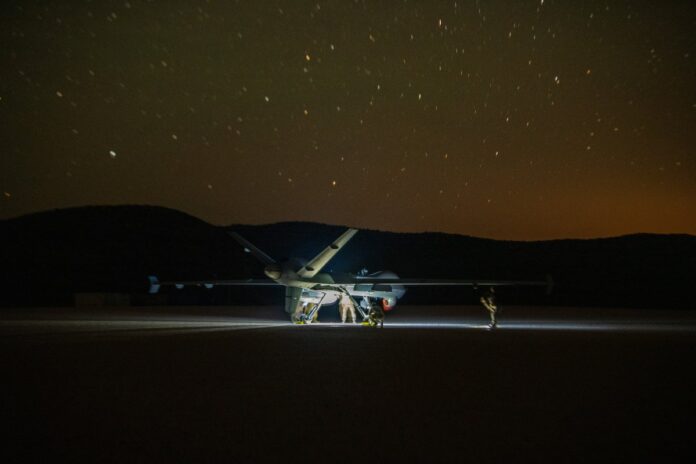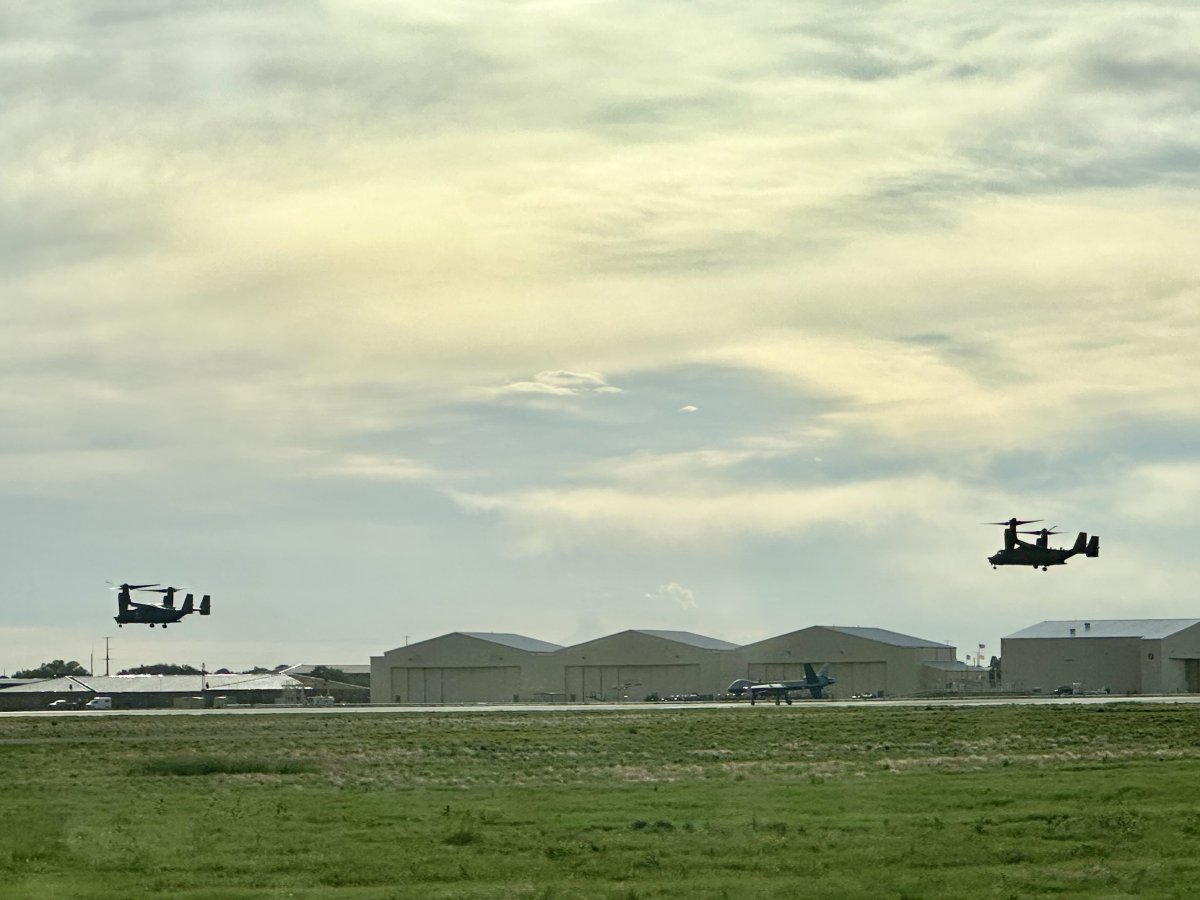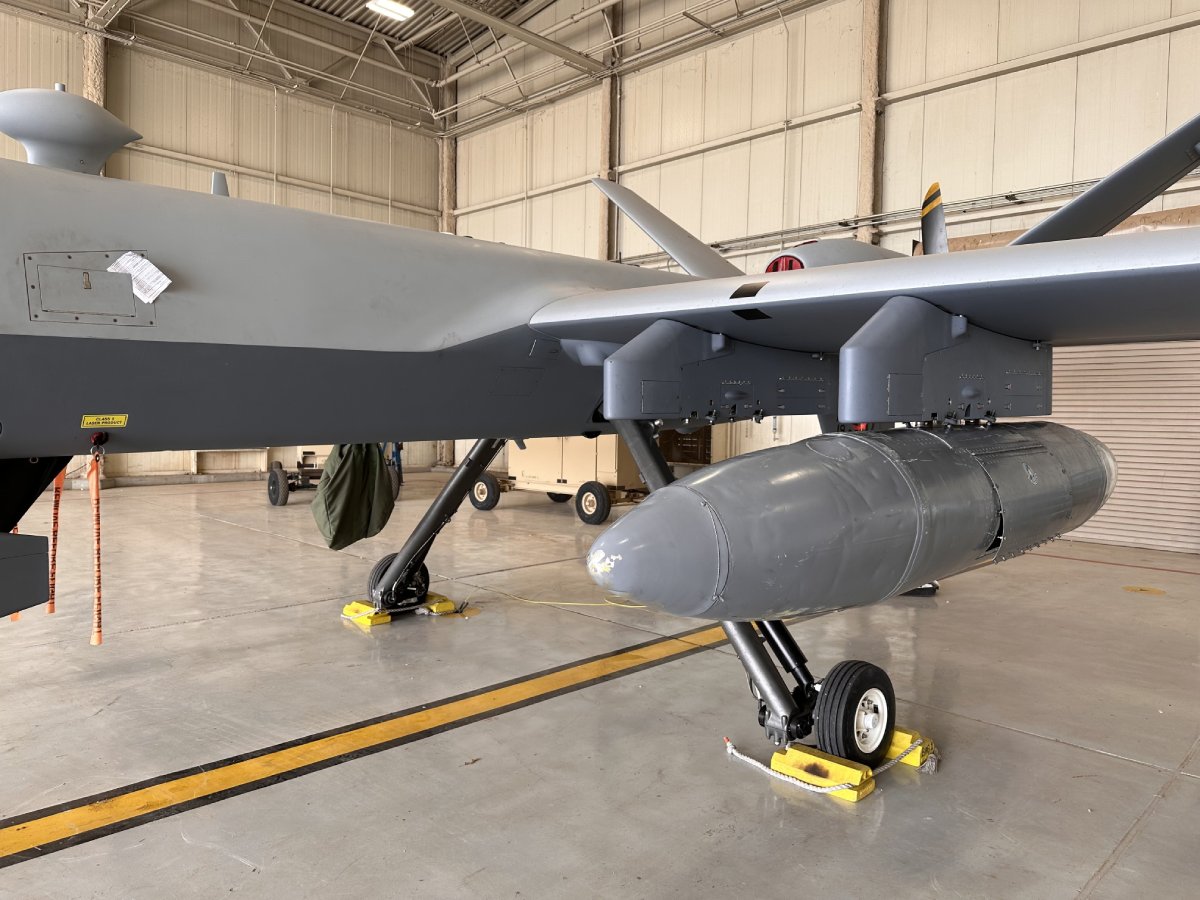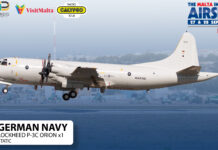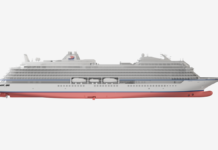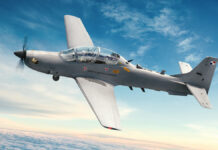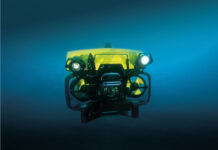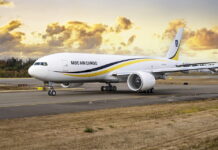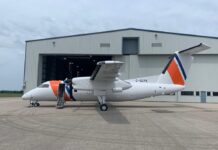Just south of Fort Stockton is one of the largest private armed forces training centers in the country, the Nine Mile Training Center — an expansive terrain offering privacy from prying eyes and the perfect opportunity to unleash the MQ-9 Reaper remotely piloted aircraft.
At this remote dirt strip in West Texas, members from the 2nd Special Operations Squadron, 727th Special Operations Aircraft Maintenance Squadron and 311th Special Operations Intelligence Squadron teamed up with Airmen from the 26th Special Tactics Squadron out of Cannon Air Force Base, New Mexico, June 15, to carve their next milestone into Air Force Special Operations Command history.
Working together, the air commandos conducted the first MQ-9 landing on a dirt landing zone.
“This is a significant achievement for Air Force Reserve Command, AFSOC, the MQ-9 community and the joint force as a whole, this team of aircrew, maintainers and special tactics Airmen have proven the Reaper can operate anywhere in the world and is no longer beholden to the ‘leash’ of perfectly paved runways or line-of-sight antennas traditionally used to takeoff and land the aircraft. This capability will be critical in ‘tomorrow’s fight’ and nests perfectly with the Air Force’s Agile Combat Employment concept that focuses on smaller footprints, distributed operations and increased survivability while generating combat power,” Flanigan said. “We are demonstrating what is possible when you leverage citizen air commandos and our diverse backgrounds to take an existing capability like [satellite launch and recovery] and apply it to the future fight.”
Lt. Col. Brian Flanigan, 2nd SOS director of operations.
Historically, the MQ-9 has taken off and landed via line-of-sight of antennas, with aircrew members manually flying the aircraft. Now, the MQ-9 can literally takeoff and land from anywhere in the world.
Flanigan was quick to point out how this new concept meets the AFRC’s priorities of ‘Ready Now’ and ‘transforming for the future.’
The 12th Aircraft Maintenance Unit from the 727th Special Operations Aircraft Maintenance Squadron supported the effort with a very small footprint to the austere location using ACE techniques, tactics and procedures developed by the 12th AMU.
“This initiative was significant in terms of refining maintenance ACE capabilities because it provided insight into how the aircraft handles landing in an austere environment, this scenario both challenged and empowered 12th AMU maintainers to assess risk utilizing their expertise and innovation to ensure aircraft air worthiness and mission success.”
Maj. Doniell Mojazza, 727th SOAMXS director of operations.
The team is not only using the MQ-9 SLR capability to access short, narrow and unprepared places, but also using it in creative ways to offer ‘off the menu’ options not traditionally provided by RPAs. This was demonstrated by their use of a travel pod attached to the aircraft to execute a critical resupply of the 26th STS on the dirt landing zone.
“We call it ‘Reaper Express,’ which is essentially just using a travel pod to develop an operational concept of delivering critical items to austere locations using the MQ-9, it may not be able to carry much, but what it can hold, might be the difference between getting that critical aircraft part to an isolated airfield or bringing in a blood supply for casualties sustained during a base attack. This provides options compared to waiting multiple weeks until intra-theater airlift can support,” Flanigan said. “What we’re also finding through the series of exercises we’ve executed, is that the ‘fight tomorrow’ capabilities we’ve been demonstrating is rapidly becoming a ‘fight tonight’ capability the joint force is wanting now.”
Lt. Col. Brian Flanigan, 2nd SOS director of operations.
While the MQ-9 has no demand shortage with its traditional role in intelligence, surveillance and reconnaissance or its ability to quickly land and execute an engine running offload could be a secondary or tertiary mission.
The collective contributions of active duty and Reserve members working together provided a glimpse of what is possible as transformation continues throughout the RPA enterprise.
“We are continuing to expand MQ-9 Reaper capabilities, the unique ability to maneuver the MQ-9 to operate anytime, anyplace is a relatively new capability and one that is transforming how we prepare for tomorrow’s fight as well as today’s.”
Maj. Dan Carlson, 2nd SOS MQ-9 chief pilot.
The certification exercise also provided a venue for intelligence analysts to contribute and further enhance the STS mission regardless of where they operate.
“We are innovating ways to provide geospatial intelligence to downrange forces, the opportunity to support this was huge for our organization.”
Capt. Courtney Cook, 311th Special Operations Intelligence Squadron assistant director of operations.


